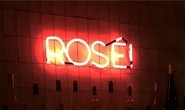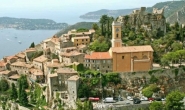óæå ïðîøëî 24 August
79 : Eruption of VesuviusOn August 24, 79, in southern Italy (near Naples today), Mount Vesuvius exploded, sending a cloud of volcanic material over 16km high in the atmosphere. The cities of Pompeii and Herculaneum were covered with ash and pumice. Thousands of people were killed. The two cities were rediscovered in the 18th century and today archaeologists can trace the history of the eruption and the lives of the people of that time. |
|
1572 : Saint Bartholomew's Day MassacreOn August 24, 1572, the elimination of Protestant leaders decided the previous day by King Charles IX, his counsel and his mother Catherine de Medici and executed by the Duke of Guise and the Duke of Aumale, led to the massacre of thousands of civilians in Paris and then in the whole country. The wedding of Protestant Henri of Navarre (later Henry IV) with the King's sister Marguerite de Valois, organized by Catherine de Medici, on August 18, against the wishes of the pope, had led to the anger of the people of Paris. Once the Duke of Guise began his mission to kill the Huguenot leaders such as Admiral de Coligny, Parisians began the massacre of all the Protestants in the city. 3000 Huguenots in Paris and tens of thousands were killed elsewhere in the country during the following days. |
|
1944 : Liberation of ParisOn August 24, 1944, the first elements of the 2nd DB (Armoured Division) entered Paris to liberate the city. U.S. soldiers of 4th Infantry Division were sent to support the French soldiers the following day. The uprising in Paris, organized by the FFI (French Forces of the Interior) led by Colonel Rol-Tanguy, began on August 19 in order to free the city. Allied soldiers were sent to help them to keep their position and to free the city. In the original plan of Eisenhower, Paris had to be bypassed to reach Berlin as soon as possible and preferably before the Red Army and to protect the French capital of the destruction ordered by Hitler. Because of the rising and the risk to Paris, Eisenhower changed his plans. |
|
1968 : First French H-bombOn August 24, 1968, France exploded its first hydrogen bomb in Polynesia. It became the fifth nuclear power in the world. |
Öèòàòà äíÿ : 24 August
| Général Leclerc Paris fights and calls us |
Äíè ðîæäåíèÿ : 24 August
| Lavinia Fontana, Italian painter (1552) | |
| Alessandro Marcello, Italian composer (1669) | |
| Jorge Luis Borges, Argentine writer (1899) | |
| Albert Claude, Belgian biologist, Nobel Prize in Physiology or Medicine (1899) | |
| Siaka Stevens, 1st president of Sierra Leone (1971-1985) (1905) | |
| Léo Ferré, French singer (1916) | |
| Yasser Arafat, Leader of the Palestine Liberation Organization, 1st President of the Palestinian National Authority (1929) | |
| Kenny Baker, English actor (R2-D2) (1934) | |
| Gregory Jarvis, American astronaut (1944) | |
| Paulo Coelho, Brazilian writer (1947) | |
| Jean Michel Jarre, French composer (1948) | |
| Joe Regalbuto, American actor (1949) | |
| Ron Holloway, American saxophonist (1953) | |
| Stephen Fry, English actor (1957) | |
| Steve Guttenberg, American actor (1958) | |
| Hideo Kojima, Japanese game creator (Metal Gear) (1963) | |
| John Bush, American musician (Anthrax) (1963) | |
| Marlee Matlin, American actress (1965) | |
| Andreas Kisser, American guitarist (Sepultura) (1968) | |
| Tugay Kerimoğlu, Turkish footballer (1970) | |
| Jean-Luc Brassard, Canadian freestyle skier (1972) | |
| Inge de Bruijn, Dutch swimmer (1973) | |
| Alex O'Loughlin, Australian actor (1976) | |
| Denílson, Brazilian footballer (1977) | |
| Jürgen Macho, Austrian footballeur (1977) | |
| Rupert Grint, English actor (1988) |
Ils nous ont quitté un 24 August
| Gaspard de Coligny , Huguenot leader (1572) | |
| Sadi Carnot, French physicist and mathematician (1832) | |
| Nikolay Gumilev, Russian poet (1921) | |
| Getúlio Vargas, Brazilian politician (1954) | |
| Jane Greer, American actress (2001) | |
| Satoshi Kon, Japanese director (2010) |
Äð. äàòû

 Réserver ses vacances
Réserver ses vacances Àðåíäà íà îòïóñêíîå âðåìÿ
Àðåíäà íà îòïóñêíîå âðåìÿ Séjours en résidence
Séjours en résidence Ñïåöïðåäëîæåíèÿ
Ñïåöïðåäëîæåíèÿ Réserver hôtel
Réserver hôtel Ïðåáûâàíèå
Ïðåáûâàíèå Ïðîãóëêè
Ïðîãóëêè Âîäíûé ñïîðò
Âîäíûé ñïîðò Ïëÿæè è ïðèáðåæíàÿ çîíà
Ïëÿæè è ïðèáðåæíàÿ çîíà Rando
Rando Òóðèçì
Òóðèçì Ýòî èíòåðåñíî
Ýòî èíòåðåñíî
 Êèíîòåàòðû
Êèíîòåàòðû Ôèëüìû
Ôèëüìû  Ðåñòîðàíû
Ðåñòîðàíû Ðåöåïòû
Ðåöåïòû Âèäû äåÿòåëüíîñòè
Âèäû äåÿòåëüíîñòè Ðàçâëå÷åíèÿ
Ðàçâëå÷åíèÿ
 Ïðîêàò ìàøèí
Ïðîêàò ìàøèí Ferry Corse
Ferry Corse Bons plans Côte d'Azur
Bons plans Côte d'Azur Monde portée de Nice
Monde portée de Nice Áèëåò íà ñàìîëåò
Áèëåò íà ñàìîëåò
 Real Estate
Real Estate Classified Ads
Classified Ads Facebook
Facebook
 Photo of the Week
Photo of the Week Agenda of the week
Agenda of the week Calendar
Calendar Horoscope
Horoscope Events
Events Our favorites
Our favorites

